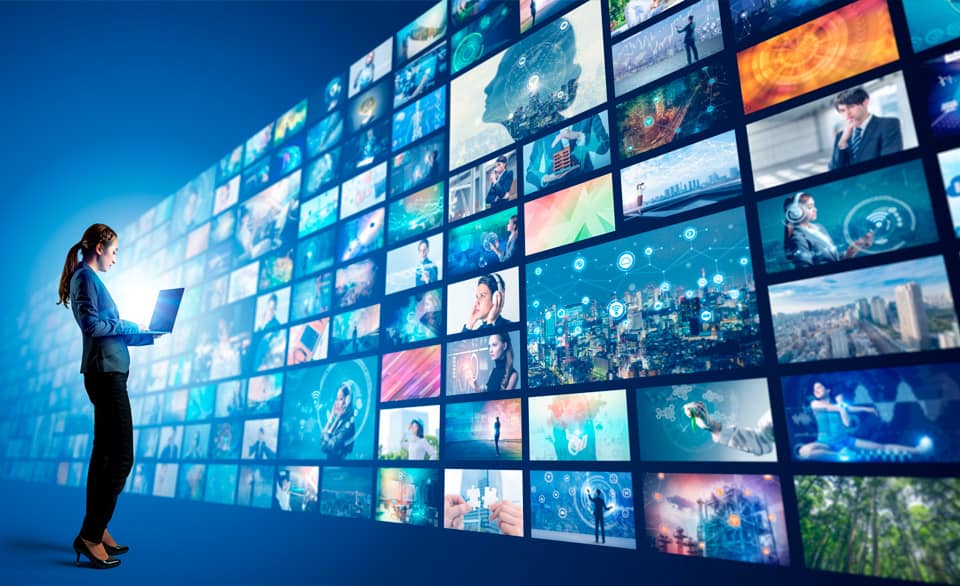The Evolving Landscape of Entertainment in the Digital Age
The Shift from Traditional to Digital Entertainment
In recent years, the entertainment industry has undergone a significant transformation. Traditional forms of entertainment, such as television and radio, have seen a decline in popularity as digital platforms have gained traction. Streaming services like Netflix, Hulu, and Disney+ have revolutionized the way we consume content, offering on-demand access to a vast library of movies, TV shows, and documentaries. This shift has not only changed how we watch our favorite shows but has also impacted the production and distribution of content. The ease of access to digital entertainment has led to the rise of binge-watching, where viewers consume multiple episodes or entire seasons in one sitting, changing the way stories are told and experienced.
The Rise of Social Media as a Key Entertainment Platform
Social media platforms have become central to the entertainment experience. Websites like YouTube, Instagram, TikTok, and Twitter are not just places to connect with friends; they have evolved into major sources of entertainment. Influencers and content creators have built massive followings by producing engaging videos, memes, and live streams. These platforms have also democratized entertainment, allowing anyone with a smartphone and internet connection to create and share content with a global audience. This has led to the emergence of new forms of entertainment, such as viral challenges, vlogs, and user-generated content, which can captivate millions of viewers in a matter of hours.
The Impact of Streaming on Music Consumption
The music industry has also experienced a digital revolution, with streaming services like Spotify, Apple Music, and Amazon Music leading the way. Gone are the days when people purchased physical albums or downloaded individual songs. Today, music lovers have access to millions of songs at their fingertips, thanks to these platforms. The convenience of streaming has reshaped how we discover and enjoy music, with personalized playlists and algorithm-driven recommendations introducing us to new artists and genres. However, this shift has also sparked debates about the fairness of streaming revenue distribution among artists, with many musicians advocating for better compensation from these platforms.
The Growth of Online Gaming and Esports
Another major trend in the entertainment industry is the explosive growth of online gaming and esports. Video games have evolved from a niche hobby into a mainstream form of entertainment, with millions of players around the world. Online multiplayer games like Fortnite, League of Legends, and Call of Duty have created vibrant communities of gamers who compete and collaborate in virtual worlds. Esports, or competitive gaming, has gained immense popularity, with professional players and teams competing in tournaments for large cash prizes. Streaming platforms like Twitch and YouTube Gaming have further fueled the growth of esports, allowing fans to watch live gameplay and interact with their favorite players in real time.
The Role of Virtual Reality in the Future of Entertainment
Virtual reality (VR) is another technology that is poised to reshape the entertainment landscape. VR offers immersive experiences that transport users into entirely new worlds, whether through games, movies, or interactive experiences. While VR is still in its early stages, it has the potential to become a mainstream form of entertainment as the technology becomes more affordable and accessible. VR has already made waves in the gaming industry, with titles like Beat Saber and Half-Life: Alyx showcasing the possibilities of this technology. In the future, VR could also revolutionize how we watch movies, attend concerts, and even socialize with others, offering new and exciting ways to experience entertainment.
The Evolution of Entertainment in a Post-Pandemic World
The COVID-19 pandemic has accelerated many of the trends in digital entertainment. With people spending more time at home, there has been a surge in demand for streaming services, gaming, and online content. The pandemic has also highlighted the importance of entertainment as a source of comfort and connection during challenging times. As the world gradually returns to normal, it is likely that many of the changes in entertainment consumption will persist. Digital platforms will continue to dominate, while traditional forms of entertainment may need to adapt to stay relevant in this rapidly changing landscape.

